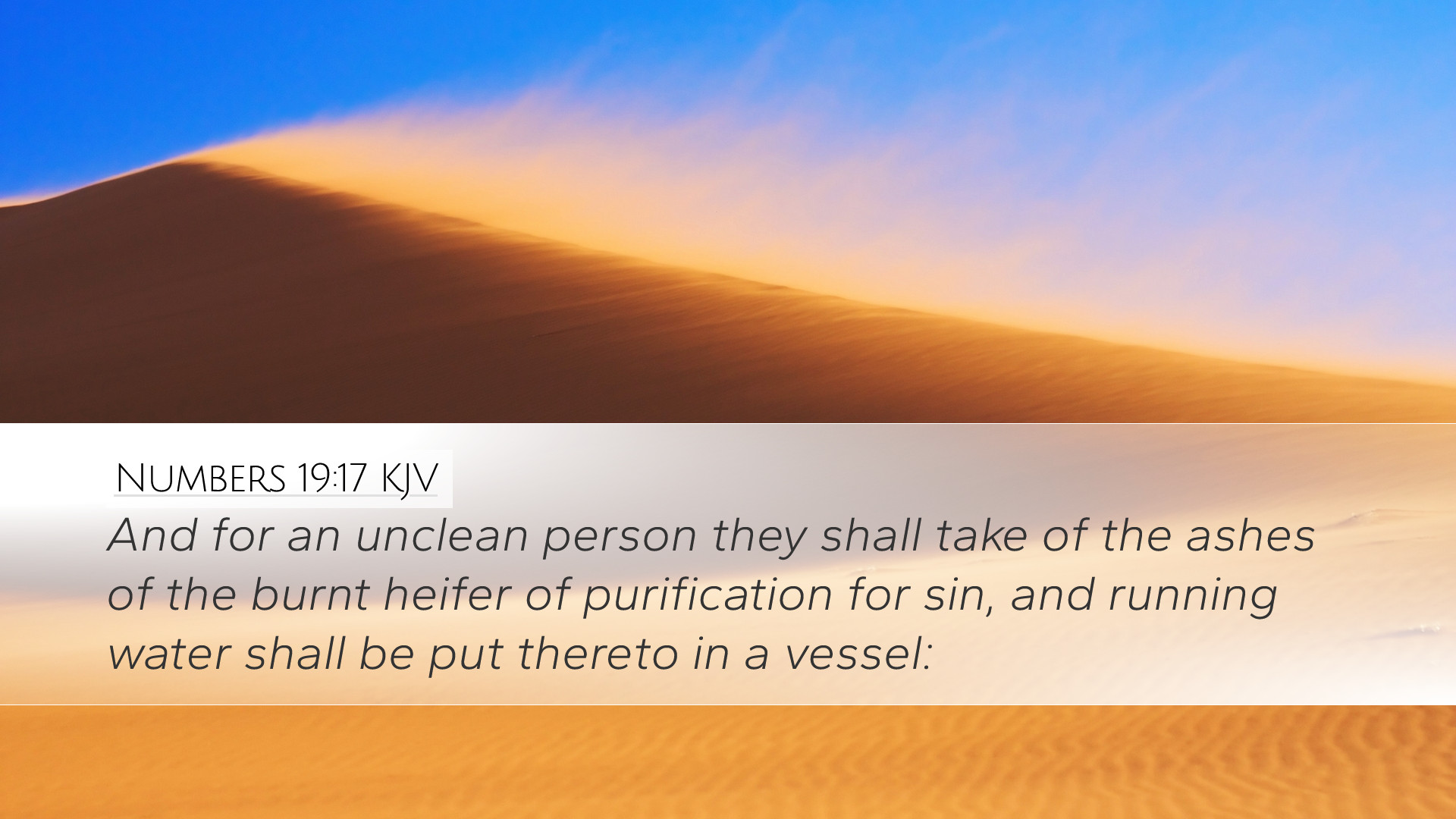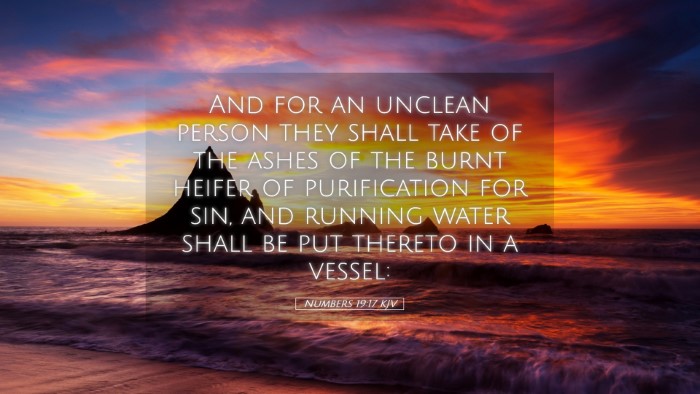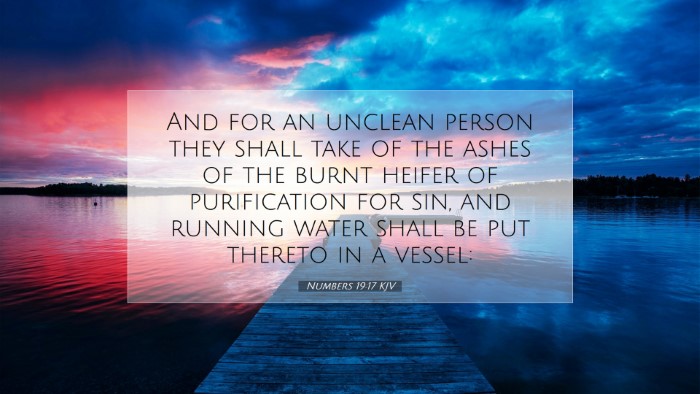Commentary on Numbers 19:17
Bible Verse: "And for an unclean person they shall take of the ashes of the burnt sin offering, and running water shall be put thereto in a vessel."
Introduction
Numbers 19:17 is a pivotal verse within the framework of ritual purity in the Israelite community. It addresses the process by which purification from sin and ceremonial uncleanness is achieved through specific ritual practices. This commentary combines insights from respected public domain commentators such as Matthew Henry, Albert Barnes, and Adam Clarke to present a comprehensive understanding of this verse.
Contextual Background
In the Book of Numbers, the Israelites have recently been delivered from Egypt and are in the wilderness on their journey to the Promised Land. Central to their communal life is the concept of holiness, which is significant in maintaining a right relationship with God. The chapter discusses the law of purification, particularly regarding those who have come into contact with death, a source of ritual impurity.
Exegetical Insights
1. The Nature of the Sin Offering
According to Matthew Henry, the ashes of the burnt sin offering serve as a symbol of atonement. The burnt sin offering represents the complete surrender and dedication to God, emphasizing that the person who has sinned must first receive forgiveness before they can be restored to the community.
2. The Role of Water
Albert Barnes elaborates on the significance of "running water" in this context. Water often symbolizes purification throughout Scripture, and in this case, it serves to activate the cleansing properties of the ashes. The combination of ashes and running water illustrates God's provision for cleansing from sin and reiterates the importance of ritual in the life of God's people.
3. The Vessel of Purification
Adam Clarke points out that the specific mention of a vessel indicates the need for a dedicated container for this ritual. This careful attention to detail underscores the seriousness with which God prescribes the means of purification, demanding a reverence for the sacred processes established for reconciliation.
Theological Implications
1. Holiness and Community
This verse emphasizes the impact of individual impurity on the community's holiness. The Israelites are reminded that personal sin can affect the collective worship and relationship with God. As Matthew Henry notes, the rituals provided are not merely for individual benefit but serve the entire community.
2. Foreshadowing Christ
Furthermore, the imagery in this verse serves a prophetic purpose. The ashes symbolize the sacrifice of Christ. Hebrews 13:11-12 connects this purification to Christ’s sacrifice, indicating that just as these ashes facilitated physical and ritualistic cleansing, Christ's sacrifice accomplishes a greater spiritual purification for the believer.
Application for Today
Rituals of Purification: While contemporary believers are no longer bound by the Old Testament ceremonial laws, the principles of seeking purification from sin remain relevant. It calls for introspection into our own practices of confession and repentance.
- Understanding Sin: Pastors and theologians are encouraged to teach about the seriousness of sin, reflecting on the necessity of coming to God for cleansing. The ashes signify the weight of sin, while the water illustrates grace flowing from God to restore purity.
- Community Implications: Congregations must understand their collective responsibility for holiness. Each member’s spiritual well-being contributes to the overall health of the church, reinforcing the idea that personal sins have communal consequences.
- Christ's Sacrifice: The fulfillment of these Old Testament laws in the New Testament through Christ presents a cornerstone for theological discussions, emphasizing that access to God’s presence is attainable through Christ alone.
Conclusion
Numbers 19:17, while situated in the Levitical law concerning ritual purity, unveils profound truths regarding sin, community, and Christ’s atoning work. By examining this text through the contributions of Matthew Henry, Albert Barnes, and Adam Clarke, we glean a richer understanding that transcends ancient rituals and speaks to the heart of the Christian faith today.


